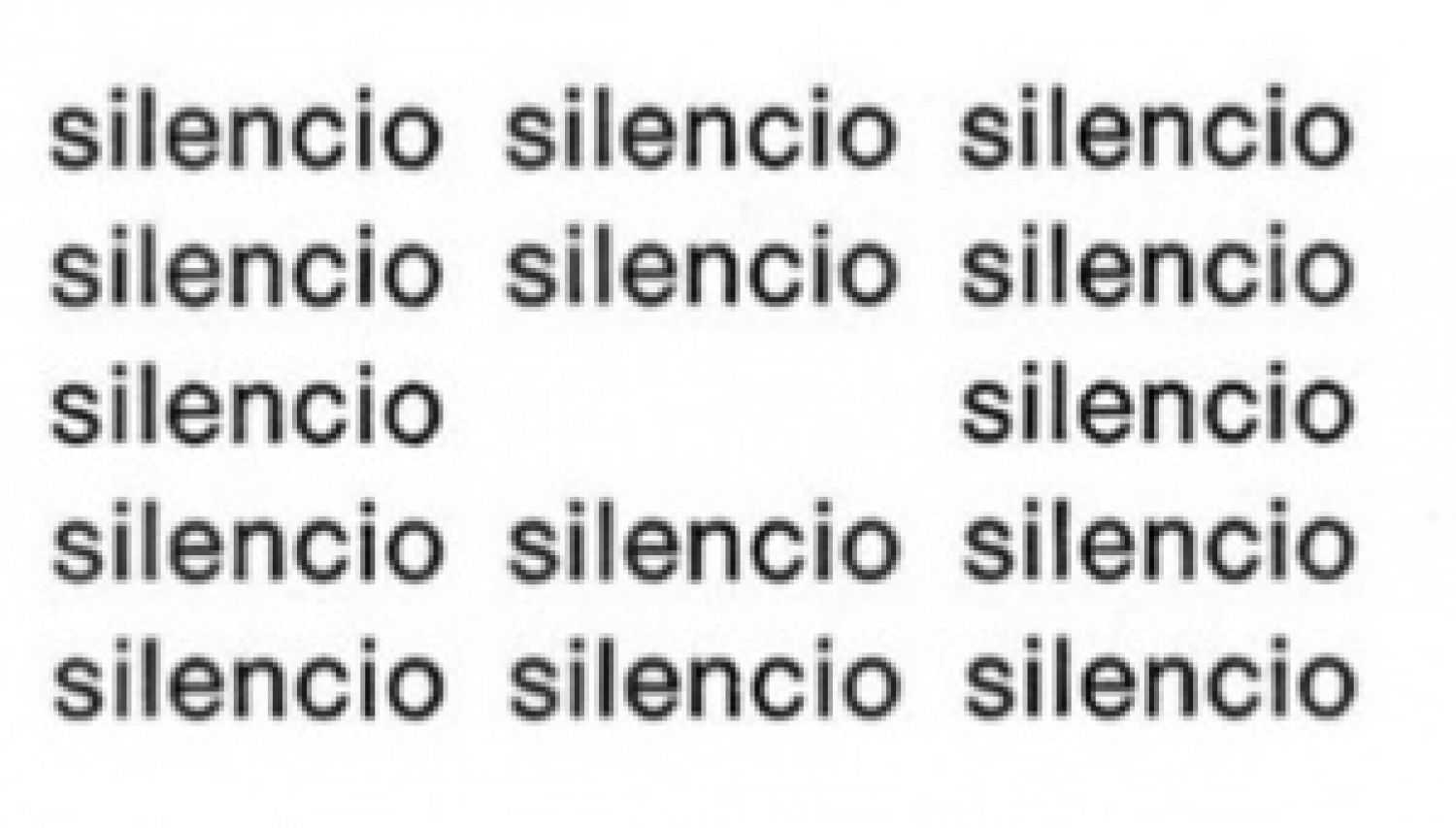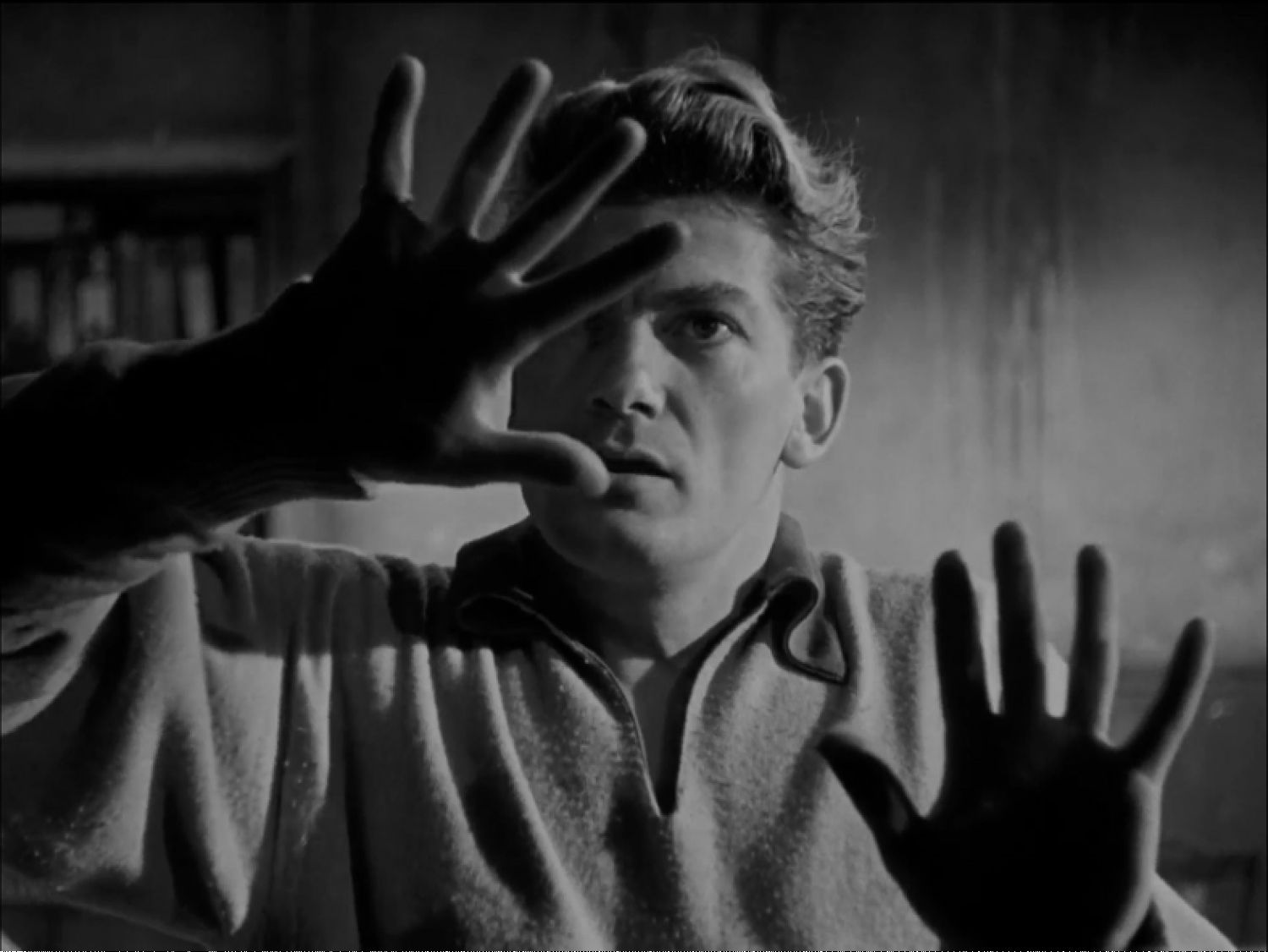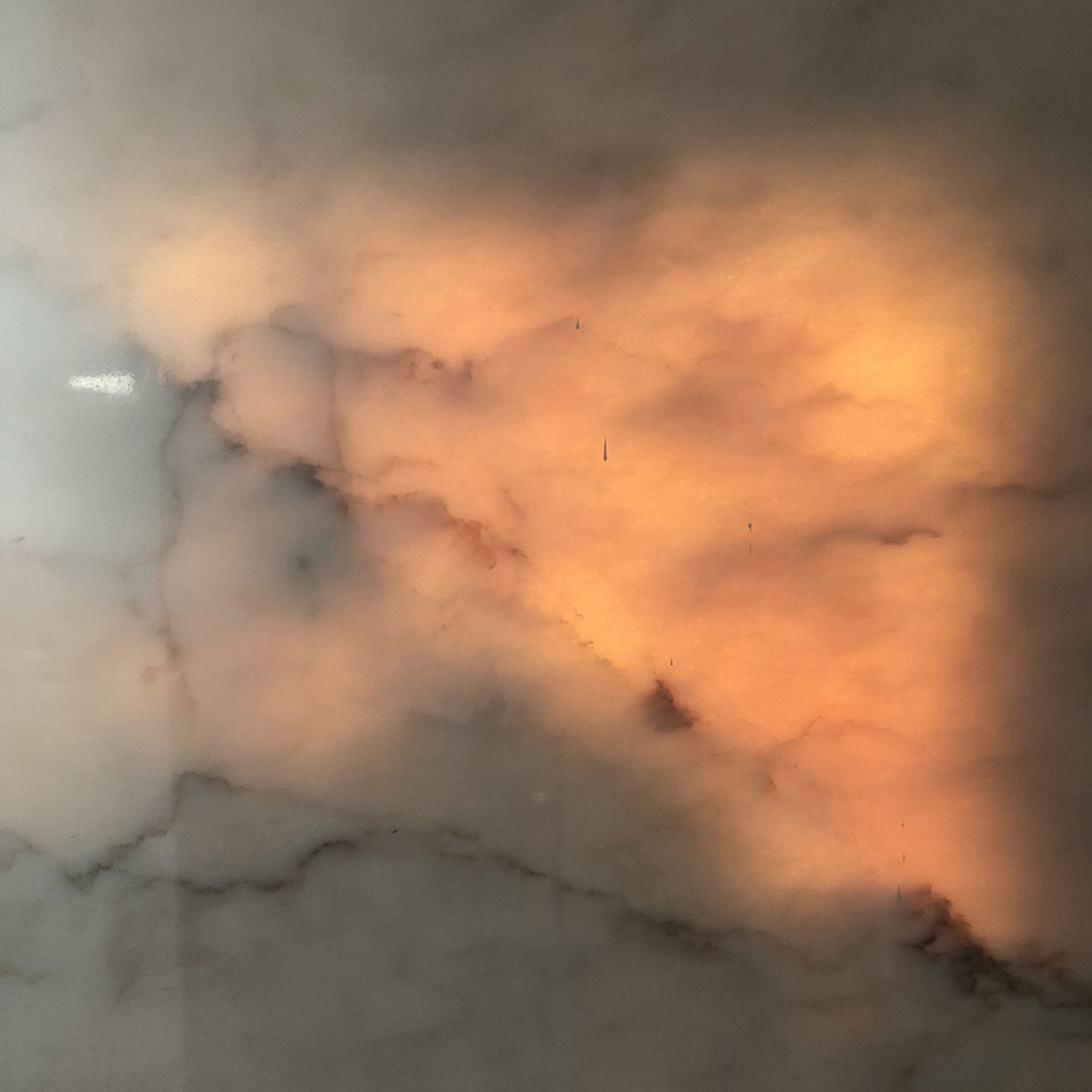About Geography
Paola D’Agostino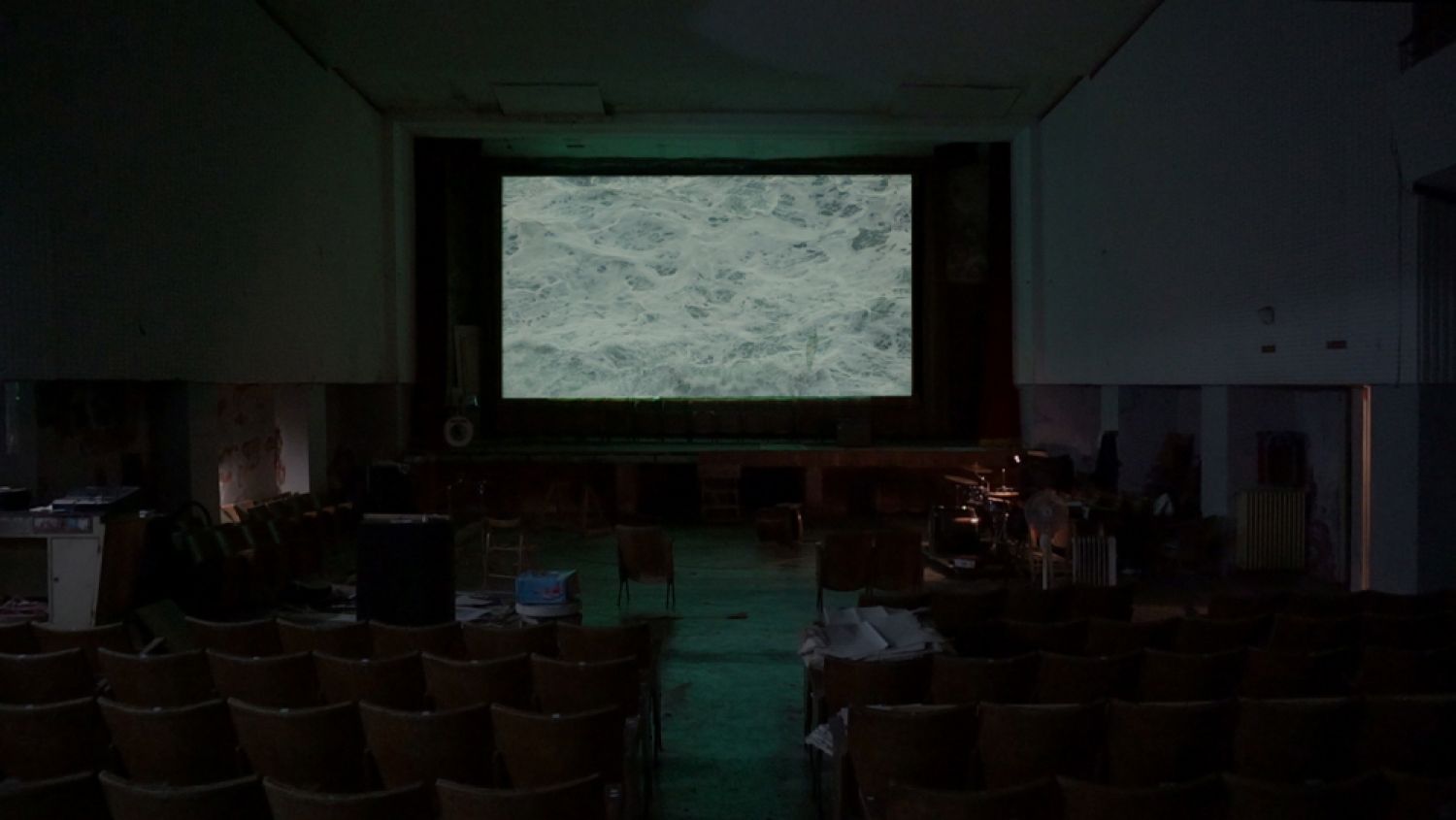
1. – Sapri –
I know well those brown chairs of ECMA (Ex Cinema Mele Aperto), carved in a wood that from now on, as Europe’s rules demand, is illegal, because it burns and yes, it can burn the imagination when one has a penchant for the abyss and wants to find the breath that is tied to the cables of the screen. My Cinema Mele was in the other end of the same sea, on another bay, it was called Cineteatro Ferrari and it had the same chairs, the same January cold. In the winter of ’97, I was studying the Book of Disquiet and I went there to watch a Wim Wenders choir called Lisbon Story. In the countryside everything arrives later and such a slowness is usually a blessing.
Frame after frame, Philip Winter (for those who don’t believe in coincidences this was the name of the protagonist) was capturing the sound of Lisbon, thus paying homage to the dream of Cinema. In the meantime he was searching for a mysterious friend through the streets of a blue chimerical city. On a wall of a then unknown alley one could read the verses of Álvaro de Campos Ah if only I could be all people and all places. Frame after frame, I say, but only until the second-to-last one. For the last one was never shown: the pizza, as the film reel was called in those analog days, broke just before the end and we never knew – neither me nor the rest of the audience that sat in the theatre – the luminous final instant that ended the film. The tickets were refunded, obviously, but that is a detail of no importance here.
During the next winter I moved to Lisbon, searching for that, possibly determinant, image-sound that escaped through the slits of technical impossibility. And I here I remain, counting the non-places and luxury condominiums that began meanwhile to occupy verses and alleys, here I remain as refusing to believe that last images truly exist beyond the utopia of a finished story.
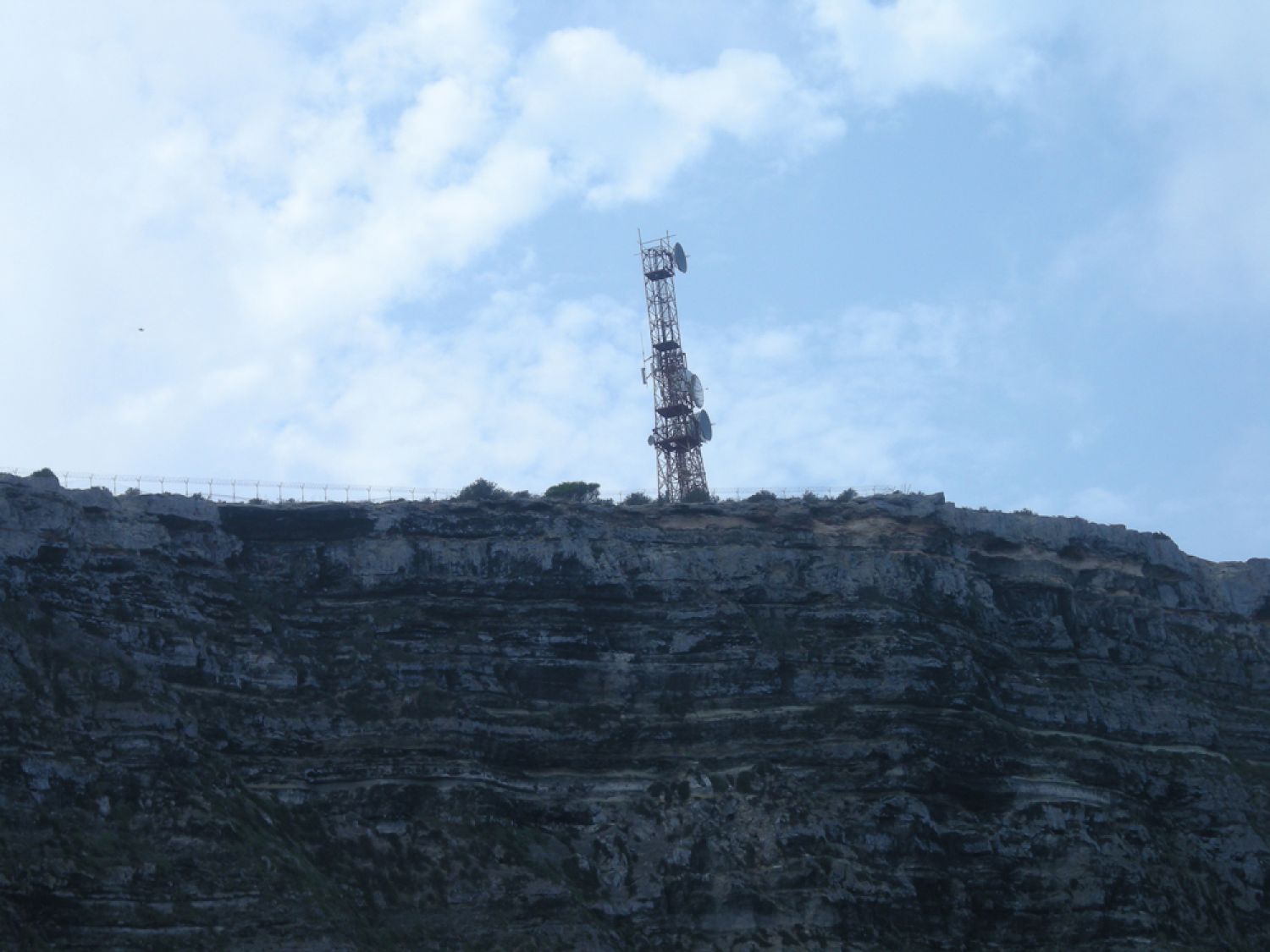
2. – Lisbon –
Meanwhile, the news about the shipwrecks came. And I stopped believing in Europe’s laws, definitely. When we began losing, in the underwater bathymetry, that luminous instant that ends the voyage, multiplied by thousands of eyes, an immense white screen was created in the bottom of the sea, a reservoir of visions that will never arrive at their destiny. And so I met Álvaro de Campos again at the Marquês de Pombal roundabout, many years after Philip Winter. There he was transcribed on a sheet, welcoming the refugees of 2015, divided by shares, as the laws dictate. Numbers. «All people everywhere», the sheet asserted, stretched by the generous arms of the protesters.
«Excuse me, do you think that this is the right side of the square?» – , a man with a Slavic accent asked me.
«What do you mean?» – , I replied.
«Well, those who don’t want the migrants are on the other side of the square. I want to be at the side of those who do want them».
«Oh, then this must be the right side, for sure».
I want to be at the side of those who do want. As simple as that. Because I depart and I arrive, every day. My work is situated in the distance that exists between two phrases, between everywhere and all places, in the difference that inevitably exists between two synonyms. My work consists in passing through between the printed word in whatever media and the word that is pronounced outside, in the world, transformed by the frequency of vocal cords. «Through the word man is bound to the language of things», says Walter Benjamin in the essay On Language as Such and on the Language of Man. And also: «The translation of the language of things into that of man is not only a translation of the mute into the sonic; it is also the translation of the nameless into name.» To give earth and breath to all things.
[When I think that this text of mine will be translated by someone else I feel that I am at the privileged side of the square, at the side of those that say what they want. The translator has a conditional freedom, she follows a path already drawn, navigates in another’s thinking. Here I take possession of words and it feels so good, oh, it does! Writing is to take possession of words, to again have a matinee in a closed cinema. It fosters the fire.]
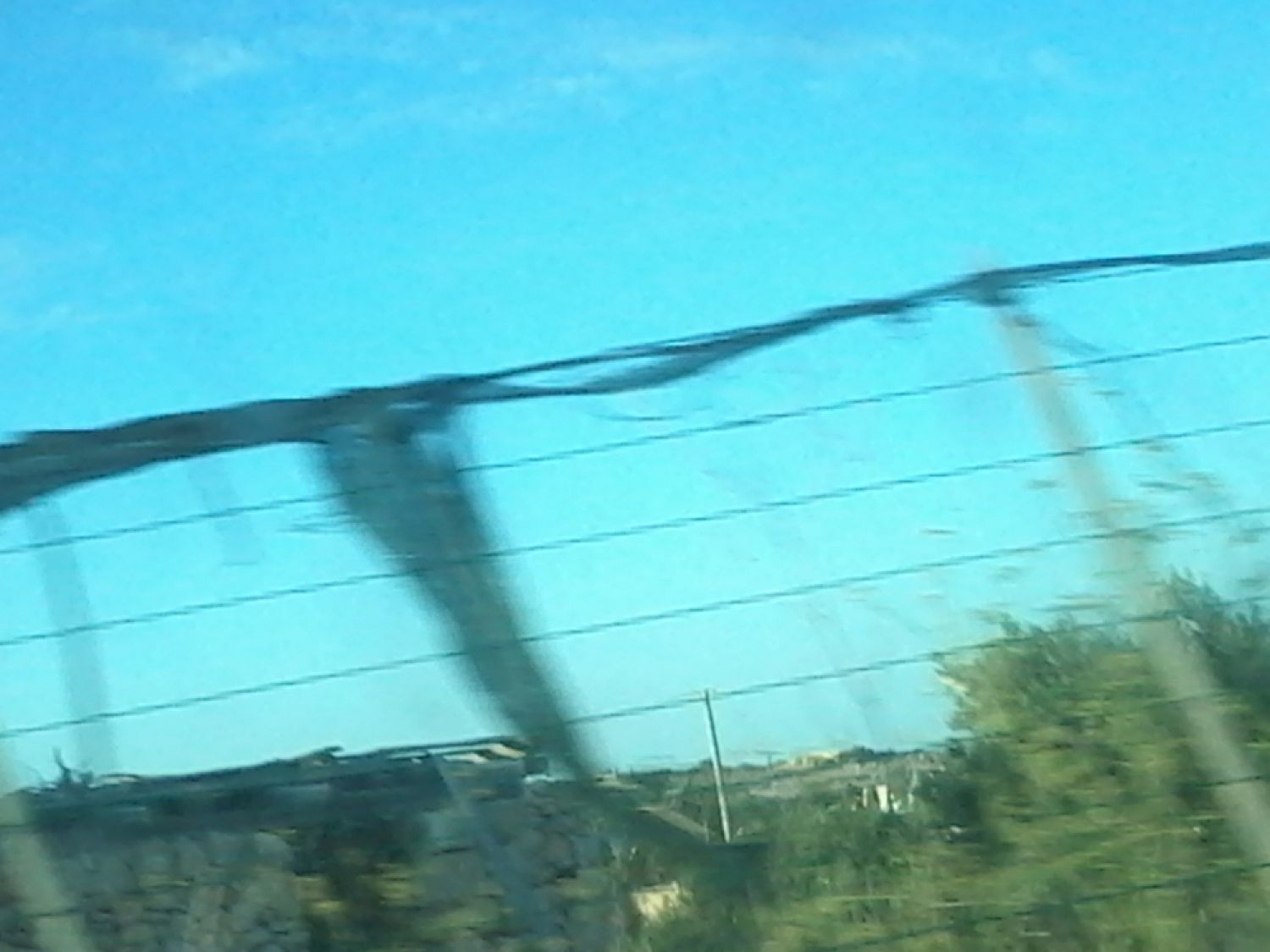
3. – Lampedusa –
A name is land and breath. With Walter Benjamin echoing in my ears I arrived in Lampedusa in the quest for that route where History’s continents shipwreck. The images that go along this text are the debris of this trip. This one’s and others’.
In the Pelagian Archipelago I finally learned Geography. I learned it on a gray porch surrounded by guards and barbary figs (Opuntia ficus indica) where the crossing newcomers are detained. The laws of Europe call it a hot spot. In a silence choked up by caltrops, under the high sun of the island stormed by radars, I learned by heart the topography of the effulgent century. I understood that the afternoon is a tree that doesn’t provide shade where the earth was sacrificed to intensive charcoal production. In the dereliction I assimilated winds and summed sinusoids of waves with renewed distinctness. I know now that if there aren’t at least two or three days of mistral the sirocco sea won’t calm down. I know the world axis may well be a keel put to dry on a weaponless beach. And that clouds are also classified by point of origin. In your shoes. In the shoes hanged at the ceiling of a little museum of the castaway memory, I trod the trails of the departed that never arrived. I probed deserts, capitals, treaties. In your shoes I learned. That we are not sea, nor land that swallows us emanating frontiers. We are at night, the lights when we land in some port. On the other side of words.
Ah, if only I could be all people and all places.
–
Images:
1. Maria Trabulo, «A Story of Fiction», 2015. Still. Video projection, colour, no sound, 1'37''. Courtesy: Maria Trabulo
2. Paola D' Agostino, «Lampedusa, August 2015»
3. Paola D' Agostino, «Lampedusa, August 2015»
